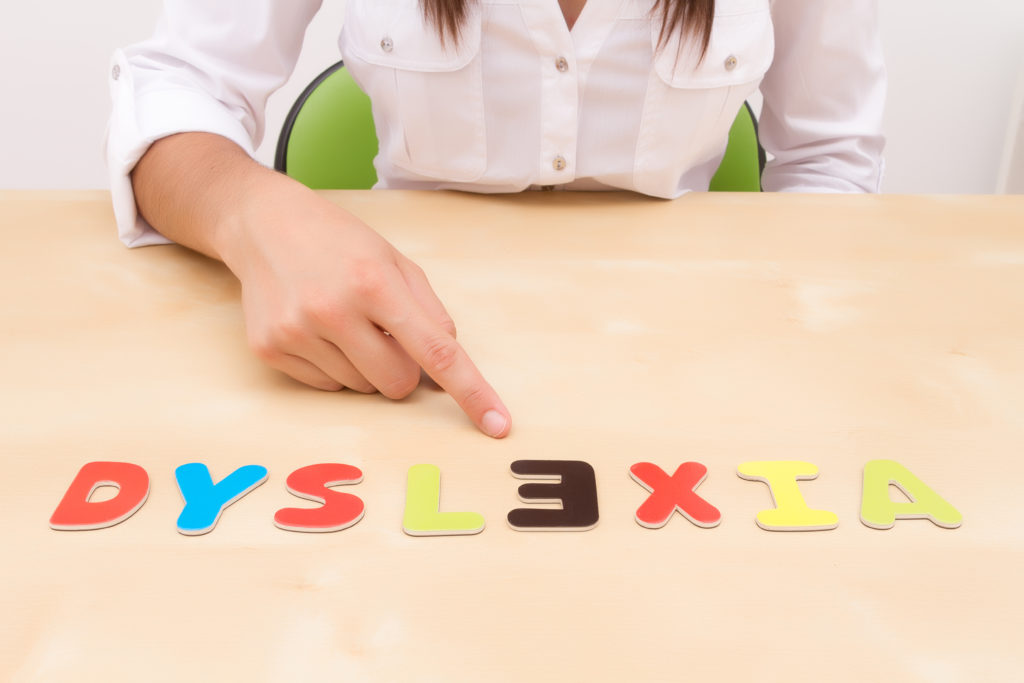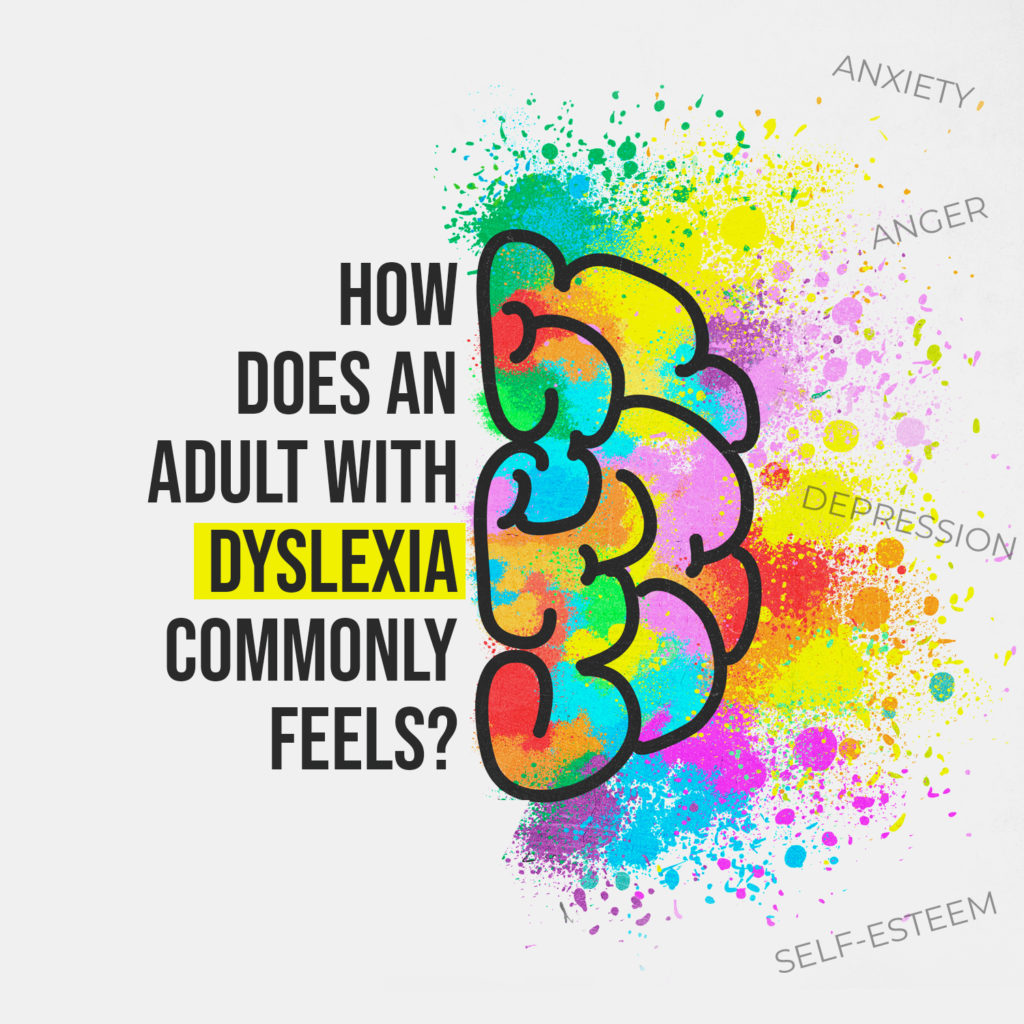It’s problematic to control your emotions if you’ve dyslexia. So, let’s find out what is dyslexia, whether there is a link between dyslexia and emotional issues, whether symptoms of dyslexia affect people’s emotions, how can dyslexia affect emotions in adults at the workplace, and how to manage your emotions in the best help from experts. All of these lookouts for dyslexia will be discussed below for a better understanding of readers.
Now, let’s begin the discussion about dyslexia with –
What Is dyslexia?
To be specific, dyslexia is a common learning difference that leads to difficulties with reading, writing, and spelling. It’s even regarded as a particular learning difficulty, which indicates that it causes problems with certain abilities for learning. Although being learning differences or difficulties, dyslexia does not affect intelligence. However, it can create an emotional impact on children as well as adults.

Therefore, by taking the best dyslexia training program you will get to understand everything about the lookouts for dyslexia.
Is There A Link Between Emotional Issues And Dyslexia?
Although dyslexia isn’t considered an emotional disorder. Still, dyslexia can cause depression, low self-esteem, anxiety, and anger amongst people. The most common emotional symptom experienced by adults with dyslexia is anxiety. They develop anxiety as a result of the constant confusion and anger they experience at work or in an educational setting.
Adult dyslexics get angry when they are unhappy at work or in social situations. The dyslexic’s anger is quite obvious to employers and workplaces. Additionally, depression is a feeling that many dyslexic individuals experience. They are more likely to experience intense sadness, pain, and lacking self-esteem.
Do The Symptoms of Dyslexia Affect People’s Emotions?
The basic symptoms of dyslexia (like difficulty reading, writing, and spelling) can cause people to withdraw from school, college, or university classes as well as work meetings and tasks. It further has the potential to make people anxious about their performed work in various settings. And also, emotions can be affected by dyslexia not only in a work or educational setting but also in relationships.
Since dyslexia is inherited, it can affect family member emotion as well. A non-dyslexic sibling might sense jealousy of the dyslexic sibling because the dyslexic sibling may receive more attention and financial support from their parents than the non-dyslexic sibling. The inability of dyslexics to achieve their objectives is only greater pain than the disappointment of not meeting other people’s expectations. This is especially true for people who deal with their anxiety by developing perfectionistic expectations. They are raised to believe that making a mistake is “terrible”.
For adults with dyslexia, growing social relationships is quite problematic and can result in various other emotional conditions as well. While taking the best dyslexia training for teachers or parents, you will surely get to understand everything important about the topic.
How Can Dyslexia Affect Emotions In Adults At The Workplace?
Regardless of being difficulty dealing with dyslexia at any age, adults with dyslexia have to deal with several obstacles. Most dyslexic adults choose careers that are neither personally challenging nor rewarding in an effort to conceal their disability. They further tend to be perfectionists, highly critical of themselves and can appear to have a lot of control over their lives. When dyslexics are compelled to constantly confront their learning difficulties, this sense of idealism can quickly produce feelings of frustration. In turn, this frustration may result in the emergence of emotional issues.
Hence, emotional problems in the adult with dyslexia is quite common. Because dyslexic employees who were supported at the workplace are commonly experiencing higher levels of negative anxiety and stress. It can also have a negative impact on an employee’s mental and physical health for adults with dyslexia. Meanwhile, dyslexics are more likely to have engagement issues and low career well-being if they are not supported at work. People who have a leader or manager who is supportive are more likely to have higher levels of job satisfaction and less anxiety related to their jobs.
The well-being of employees can also be negatively impacted by employers who are unaware of their dyslexia. The productivity and engagement of dyslexic or other neurodiversity employees would rise if employers were more aware of dyslexia and other forms of neurodiversity. For that, having the best dyslexia training program to participate compulsorily is most important in workplaces.
How Does An Adult With Dyslexia Commonly Feels?

The following are commonly experienced feelings among adults with dyslexia –
• ANXIETY
The most common emotional symptom that dyslexic adults report is anxiety. Because of their constant frustration and confusion at the workplace, dyslexics develop fear. These feelings are made worse by dyslexia’s inconsistent behavior. It can be extremely anxiety-provoking for them to enter new situations because they may anticipate failure.
Anxiety leads them to avoid things that frighten them. And there is no exception for dyslexic adults. This kind of typical behavior is often mistaken for laziness by others. In fact, dyslexic adults usually avoid participating in office activities is more closely associated with anxiety and confusion than lethargy.
• DEPRESSION
Depression is another common complication of dyslexia. Both adults and children with dyslexia are more likely to experience intense feelings of sadness and pain, despite the fact that the majority of dyslexics do not suffer from depression. Dyslexics may be afraid to channel their anger toward themselves rather than their environment, perhaps as a result of their low self-esteem. Also, depressed children often exhibit distinct symptoms from depressed adults.
A depressed adult or child is more tends to have negative self-esteem, a negative outlook on the world, and a lack of positive approaches for their future. A depressed dyslexic not only goes through a lot of pain, but they also see a life filled with failure. So, it’s important to treat adults or children with dyslexia.
• ANGER
A lot of emotional issues caused by dyslexia are the result of dissatisfaction with social or workplace settings for adults. Most dyslexic adults exhibit anger in various stages of their life, like traveling, speaking in public, and in any situation where they feel hazardous. If they aren’t able to express their feelings, dyslexic adults can also get angry in such circumstances. Also, they can become furious or confused while feeling angry about anything.
The dyslexic adults can also get angry by distancing themselves from the dependent individual. It’s difficult to help dyslexic adults with the right steps due to these factors.
• SELF-ESTEEM
The self-esteem of dyslexic adults appears to be extremely susceptible to anxiety and frustration. Everyone needs to resolve conflicts with a positive self-image and avoid feelings of lowliness during their childhood. They can grow self-confidence and the belief that they can succeed in life if they have the best help. Also, dyslexic adults mostly feel helpless in life out of frustration to do something not so easy.
Most dyslexic adults generally attribute success to their luck, but their failure to stupidity. The feelings of inferiority are even common among them and become extremely challenging to overcome and develop a positive self-image in life. This makes a strong case for early intervention.
How To Support The Emotional Health of Dyslexic Adults?
To help dyslexic adults or children who are experiencing issues with emotional well-being, one needs to participate in an industry-grade dyslexia training program and acquire professional skills about the topic. Professionals further need to listen to their feelings, assist them in learning how to talk about their feelings, and recognize their efforts (even if it’s small).
In most circumstances, adults with dyslexia can control their emotions by volunteering or choosing careers that require social conscience and empathy. They can also talk about their problems with other adults. Their previous experiences are suitable to deal with their pain and frustration more effectively and feel better about themselves. Reaching out to others is how a lot of successful dyslexic adults deal with their own pain.
Understanding dyslexia’s cognitive and emotional effects are the first step. The next step is to develop strategies that will enable dyslexic adults to find happiness and success in their personal relationships and professional life. So, if you want to overcome your reading or writing difficulties as a dyslexic adult, you can simply get-in-touch with a dedicated team of I Empower LLC for the best help. For better assistance, you can simply write-to-us at nharris@iempowerllc.com.
Now, let’s hope all of your concern about how can dyslexia affect emotions in adults is resolved after reading with us. Visit today for learning the details of dyslexia!
